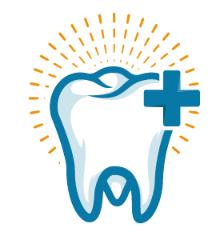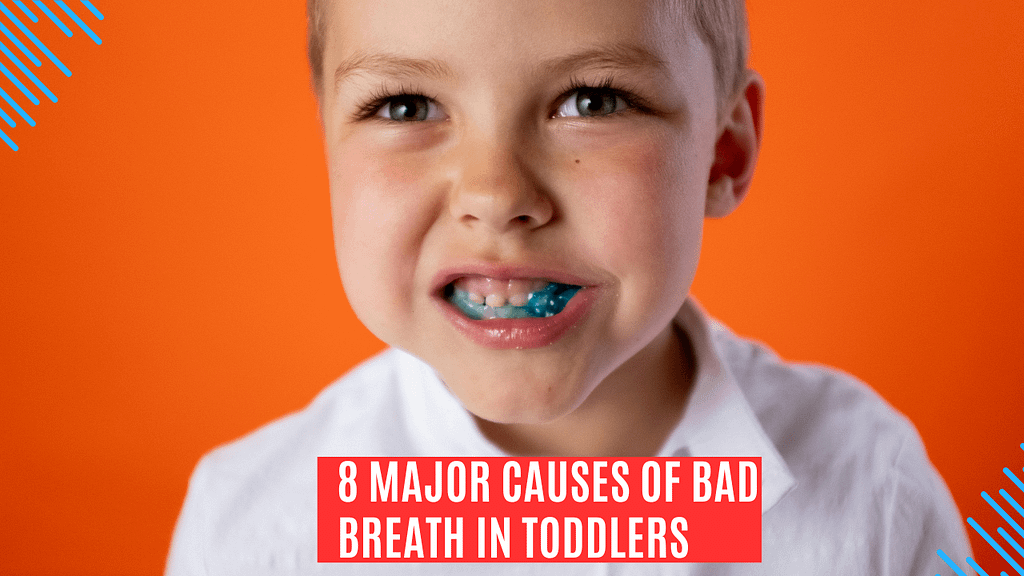Halitosis, or bad breath, is not only limited to adults; toddlers can also experience it. When your child has bad breath, it can be alarming and even embarrassing. But don’t worry; sudden bad breath in toddlers and kids can significantly improve by comprehending the causes and knowing how to address them.
Oral directions will provide a complete guide about bad breath in kids, the leading causes of it, and effective solutions.
What Causes Sudden Bad Breath in Toddlers?
Toddlers’ foul breath is caused by many reasons, but not brushing their teeth is not the mere cause of halitosis.
To address the underlying cause of their foul breath, you should find out what’s causing it.
8 Main Reasons for Sudden Bad Breath in Toddlers and Kids
These are the major causes of halitosis in toddlers:
1. Poor oral hygiene
One of the main reasons toddlers have halitosis is that they do not care for their teeth well. Food particles can get stuck in a child’s gums, tongue, or teeth if they don’t brush and floss regularly.
The bad breath emanates from sulphur compounds, and bacteria decompose these particles to produce an unpleasant smell.
2. Cavities or Tooth Decay
Another possible cause of stinky breath among baby of 1 year old is tooth decay and cavities. Decay in teeth may create small holes where food can get trapped.
These caught-up bits may help grow bacteria that give a foul smell and rotting tooth material.
3. Dry Mouth
Saliva, which washes away foodstuff particles along with bacteria, assists a lot in keeping the mouth clean.
Lack of enough saliva to wash off all the food debris and killing bacteria makes the toddler’s mouth dry. Low saliva levels breed a high population of bacteria in one’s mouth, leading to foul odours and sudden bad breath in toddlers and kids.
4. Sinus Infections
Sinus infections are also known to be one factor for terrible breaths among toddlers. A kid with a sinus infection may experience a buildup of mucus, which will flow back into the throat through the nose.
The bacteria in the mucus produce a strong smell, which can be noticeable when the child exhales or talks. A sinus infection may be the culprit if symptoms like a runny nose, cough, or facial pain accompany bad breath.
5. Gastroesophageal Reflux Disease (GERD)
Infants suffering from acid reflux illness, GERD, will also experience bad breath. Stomach acids reflux into the esophagus and occasionally travel to the mouth in GERD.
This acid can cause bad breath, which also smells sour.
6. Tonsillitis
Tonsillitis, or inflammation of the tonsils, is another condition that can cause a child to have poor breath.
In those crypts or cracks on the surface of the tonsils, germs, food particles, and mucus could get stuck. As these trapped materials decompose, a foul odor may develop.
7. Dietary Choices
Several food items are known to be responsible for bad breath, even in kids. Sulfur compounds cause bad breath in foods such as garlic, onions and spices.
These compounds enter into the bloodstream through these foods. Similarly, high-sugar diets, including sweet drinks, encourage oral bacterial growth that leads to halitosis.
8. Medication Side Effects
Many medications that are prescribed for toddlers might come with side effects that lead to foul-smelling breaths.
Specific medicines may cause dry mouth, while others might alter oral microbiota, enhancing bacterial load.
If you notice your toddler has developed an unpleasant smell immediately after starting a new medicine, the drug may be causing some of these problems.
How to Treat a Child’s Bad Breath?
Once you have identified the root of the problem, there are numerous things you can do to treat and prevent bad breath in your toddler.
8 Effective Ways to Treat and Prevent Bad Breath in Toddlers
Bad breath in toddlers is quite common due to a number of reasons. Here we share some effective home remedies which are as follow:
- Toddler Brushing Techniques
Ensure that your toddler brushes their teeth twice every day using fluoride toothpaste. As parents, you should help them brush their teeth properly.
- Introduction of Flossing
Start flossing while still young despite its challenges for toddlers. Flossing helps remove food particles stuck between one’s teeth, which a toothbrush cannot reach.
- Adequate Hydration
Keeping your child hydrated can reduce bad breath resulting from dry mouth.
- Water Consumption Importance
Let your toddler drink water throughout the day. Water assists in flushing out food particles and maintains saliva production.
- Dry Mouth Management
Consult a doctor if your child has a dry mouth because of breathing through the mouth, among other causes.
They will propose a humidifier for your child’s room or give tips on increasing saliva production.
- Changing Eating Habits
The type of food that a child consumes has an impact on their breath quality.
- Foods Not to Eat/Bad Breath Foods List
Avoid garlic, onions and sugary snacks, as these foods have the potential to cause bad odour. Choose vegetables and fruits instead, which assist in purifying the mouth.
- Better Oral Hygiene
Enhancing oral hygiene is usually the best way of dealing with halitosis.
Take Away
In summary, breath that suddenly smells bad in little children can indicate something, including dental hygiene, diet or other health issues.
Quick intervention through the right kind of dental care and consultation with a healthcare provider will go a long way in solving the problem and ensuring the child’s overall wellness.
FAQs
Why does my toddler’s breath smell like chemicals in morning?
Chemical-like breath from a small child could mean acid reflux, dehydration, or exposure to some foods or medicines. Seek a pediatrician’s advice.
Do toddlers get bad breath when sick?
Yes, toddlers have bad breath when unwell because they sleep with their mouth open, have low body fluids due to illness or have infections like common colds and flu, influenza sinusitis, adenoiditis, laryngitis pharyngitis.
Why does my child have bad breath even after brushing?
After brushing teeth, persistently smelling foul might arise from food particles trapped in the mouth and dryness within it, as well as other causes such as tonsil stones (a calcified mass near the throat), sinus problems or digestive disorders.
Why does my toddler have bad breath from his stomach?
Stomach-originating bad smells could be caused by gastroesophageal reflux disease (GERD). It is characterized by the backflow of stomach acids or contents into the esophagus and mouth.
How can I help my child with bad breath?
Please support your child if they are suffering from halitosis. Good oral hygiene should be maintained in toddlers, and they drink enough water to resolve dietary-related problems.
Consult your doctor about any underlying conditions that may cause this condition.

